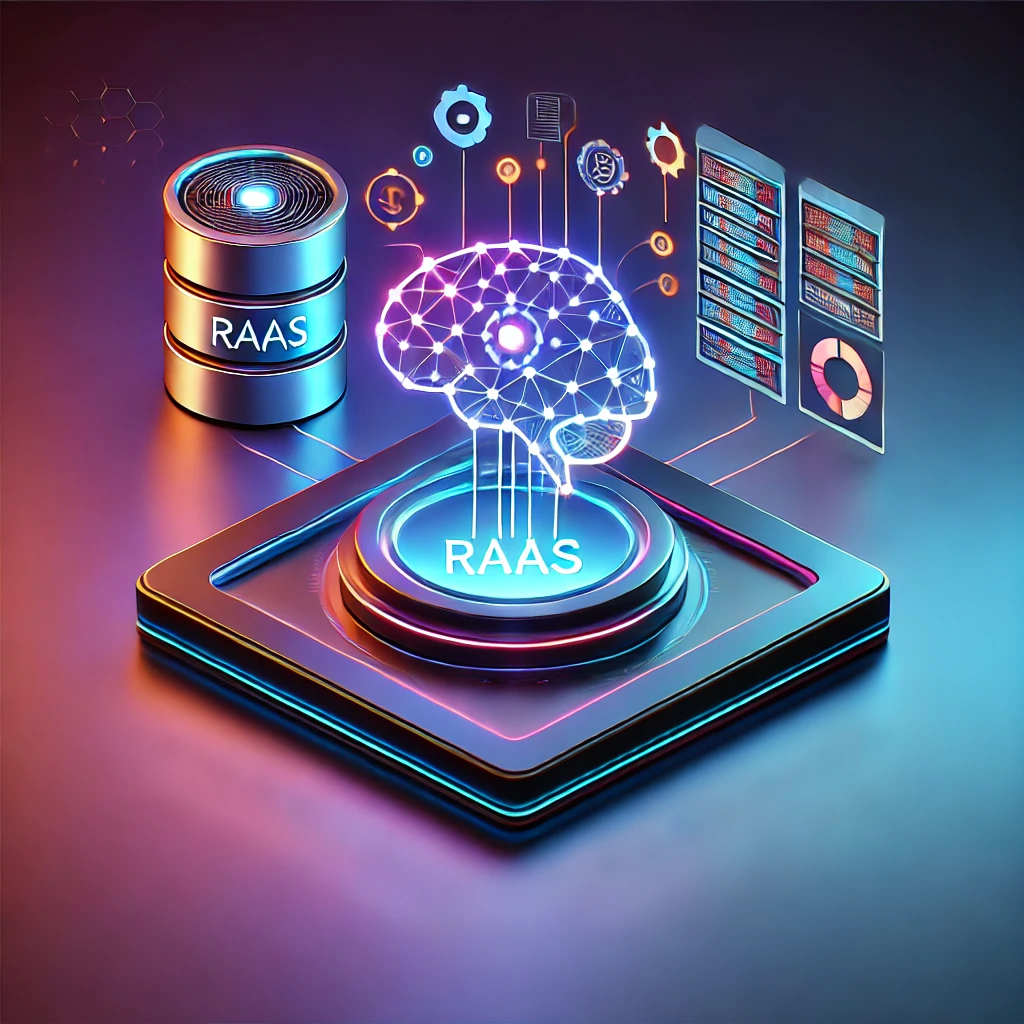In the fast-evolving landscape of artificial intelligence, new technologies are reshaping the way businesses interact with data. One such advancement making waves is Retrieval Augmented Generation as a Service (RaaS). But what exactly is RaaS, and why is it capturing the attention of so many in the tech world right now? Let’s dive in.
What is Retrieval Augmented Generation as a Service (RaaS)?
At its core, Retrieval Augmented Generation (RAG) combines two powerful AI technologies: retrieval systems and generative models. A retrieval system finds relevant information from a large database, while a generative AI (like ChatGPT) takes this information and crafts a response or output. RaaS takes this hybrid approach and delivers it as a service, making it accessible for businesses without needing in-depth AI expertise or extensive infrastructure.
Imagine having a powerful assistant that can instantly search through a company’s entire knowledge base and provide a well-crafted answer—that’s the power of RaaS. It’s like having an AI that not only understands but also knows exactly where to look for the right information before generating a response.
Why Retrieval Augmented Generation?
RaaS is becoming a game-changer because it provides a unique blend of precision and creativity. Traditional AI models generate answers based on the data they were trained on, which might be outdated or too generic. On the other hand, retrieval-based systems can be accurate but lack the human-like response finesse. By combining the two, Retrieval Augmented Generation as a Service (RaaS) offers:
Timeliness: RaaS pulls data from up-to-date sources, ensuring that the response is accurate and current.
Deep Contextual Understanding: Instead of generating generic content, it brings in information specific to a user’s request, making responses more personalized and relevant.
Business Agility: With RaaS, companies can make complex knowledge accessible across teams, speeding up decision-making and reducing knowledge silos.
Why Now? The Rise of RaaS
The concept of RaaS is flourishing right now because of three key trends:
- Data Explosion: Businesses are drowning in data. The need to effectively search and utilize information has never been more critical. RaaS acts as an intelligent filter, sifting through mountains of data to bring back exactly what’s needed.
- Advances in Generative AI: Recent breakthroughs in language models have significantly improved their capabilities to understand and articulate human-like responses, making retrieval augmented generation much more practical.
- Demand for Automation: With a growing emphasis on efficiency, businesses are eager to adopt solutions that can streamline workflows, answer customer inquiries, or help employees find the right data without manual searching.
The Promises of RaaS
Customer Support Revolution: RaaS can supercharge customer support by allowing AI to provide accurate, well-researched answers in real-time, cutting down on response times and improving customer satisfaction.
Employee Empowerment: By making internal knowledge instantly accessible, RaaS helps employees solve problems faster and make informed decisions without relying on manual document searches.
Content Generation: Content creators can use RaaS to quickly gather insights from large databases or archives, creating rich, contextually aware content.
Challenges Facing RaaS
While RaaS holds a lot of promise, it’s not without its challenges:
Data Quality: If the underlying data sources contain errors or biases, the responses generated by RaaS will reflect them. Ensuring high-quality and diverse datasets is key.
Privacy Concerns: Since RaaS pulls information from databases, ensuring that confidential or sensitive information is not exposed becomes a major concern. Robust access controls and encryption are essential.
Integration Complexity: Making RaaS seamlessly integrate with existing company systems and knowledge repositories can be a technical hurdle, especially for larger organizations with fragmented data silos.
Business Models for RaaS
RaaS opens up new business models for companies looking to integrate this technology:
Subscription-Based Access: Similar to other SaaS offerings, RaaS can be offered on a subscription basis, allowing businesses to pay for a set volume of usage or access to advanced features.
Per-Query Pricing: Businesses might prefer to pay based on the number of queries processed, making it flexible for companies with fluctuating needs.
Vertical-Specific Solutions: Tailoring RaaS for specific industries like healthcare, finance, or customer service can provide added value by understanding industry-specific jargon and requirements.
The Future of RaaS
Retrieval Augmented Generation as a Service has the potential to reshape how we interact with information, both in business and beyond. Imagine an AI that not only helps a customer with troubleshooting but also pulls up the exact repair manual page and provides a personalized walk-through. Or think of a team brainstorming product ideas, with RaaS acting as an instant reference guide, providing data, reports, and creative suggestions in real time.
As AI evolves, RaaS will likely become an integral part of our digital toolbox, combining the precision of retrieval systems with the creativity of generative models. We are only beginning to scratch the surface of what this technology can do.
Final Thoughts- Retrieval Augmented Generation as a Service (RaaS)
Retrieval Augmented Generation as a Service (RaaS) brings together the best of two worlds—information retrieval and content generation—delivering an AI-powered assistant that’s both informed and conversational. The opportunities are immense, but it will require thoughtful deployment, ensuring data quality and privacy safeguards to fulfill its promises.
Join the businesses already transforming their operations with RaaS. Contact Gegosoft Technologies today to explore how we can help you stay ahead in this data-driven era. Let’s shape the future, together.
















